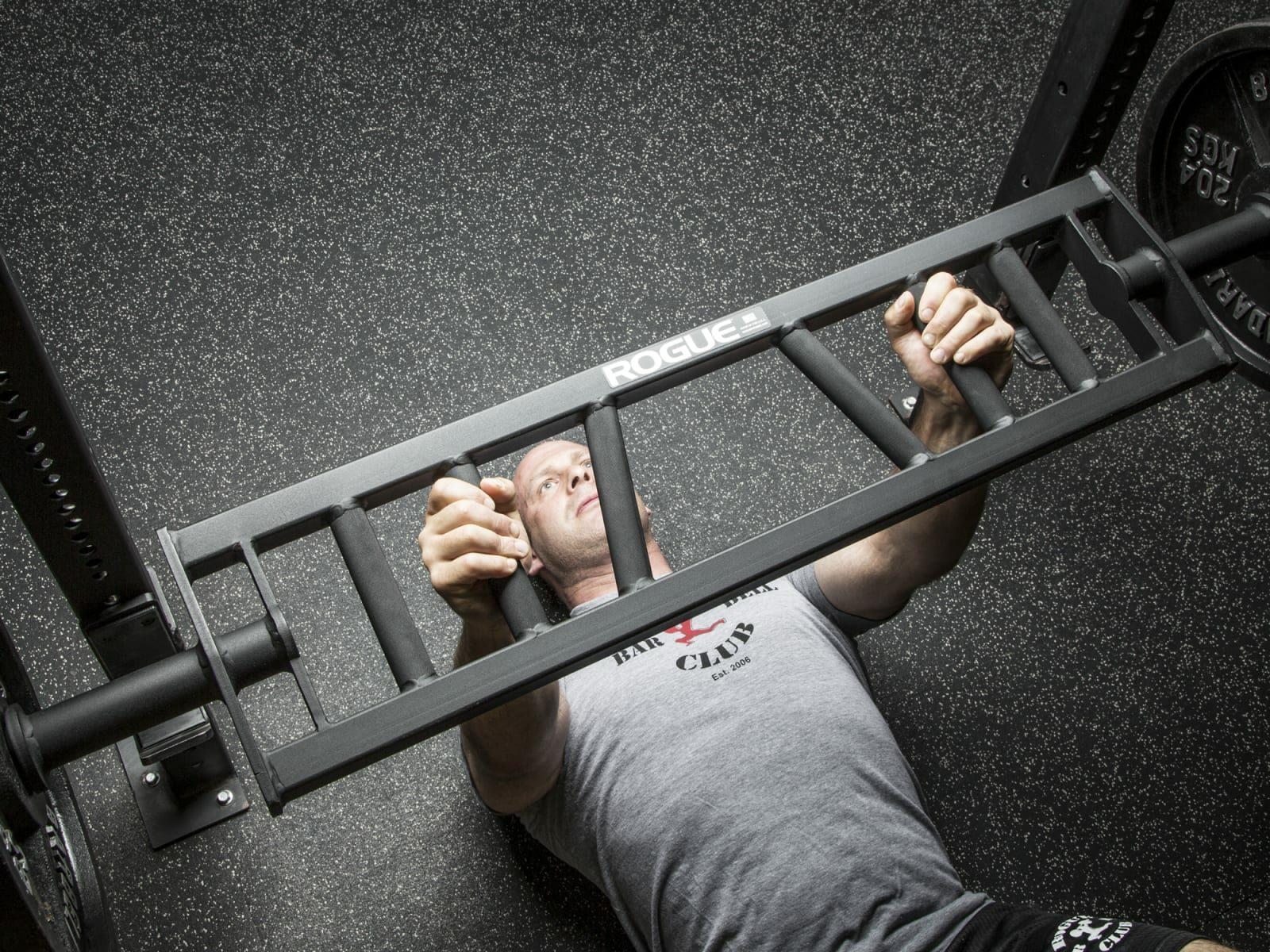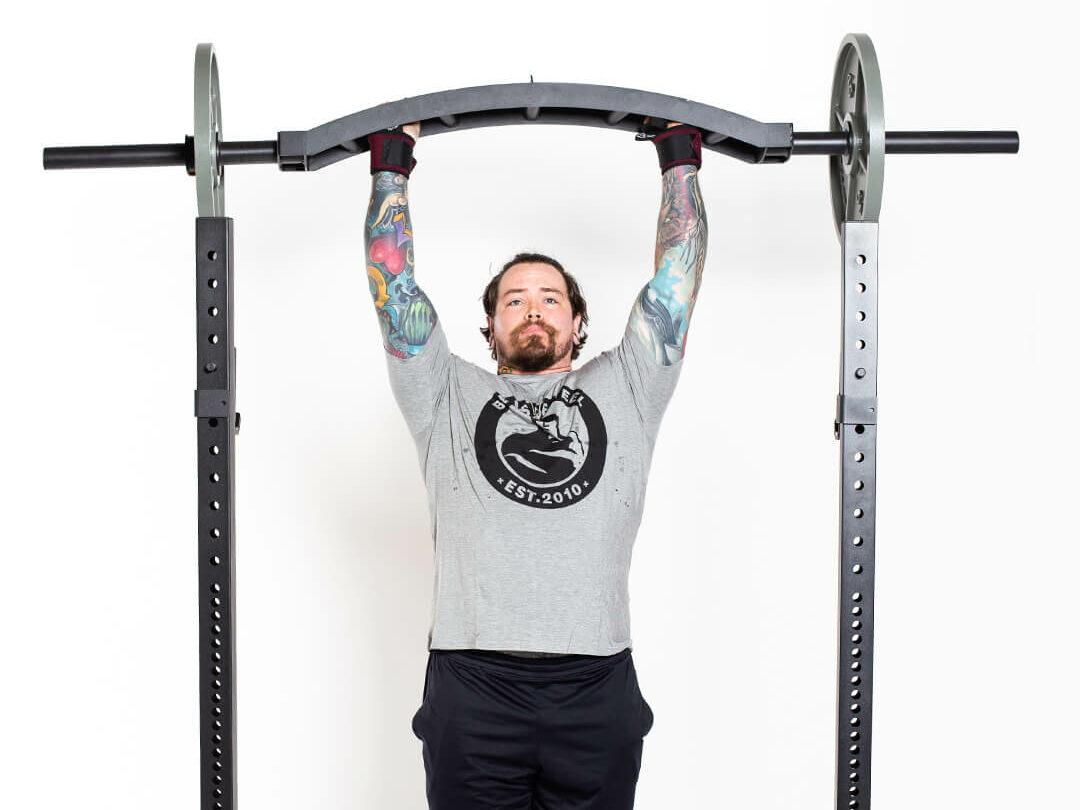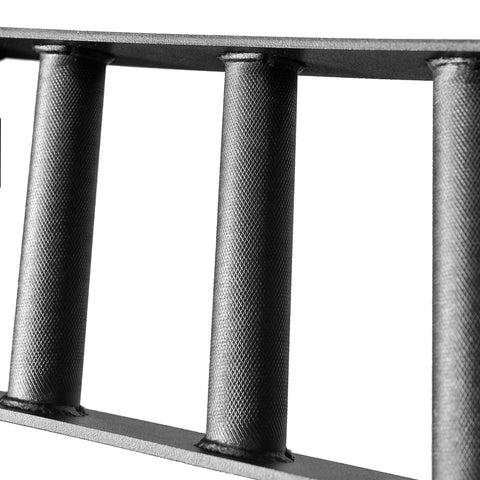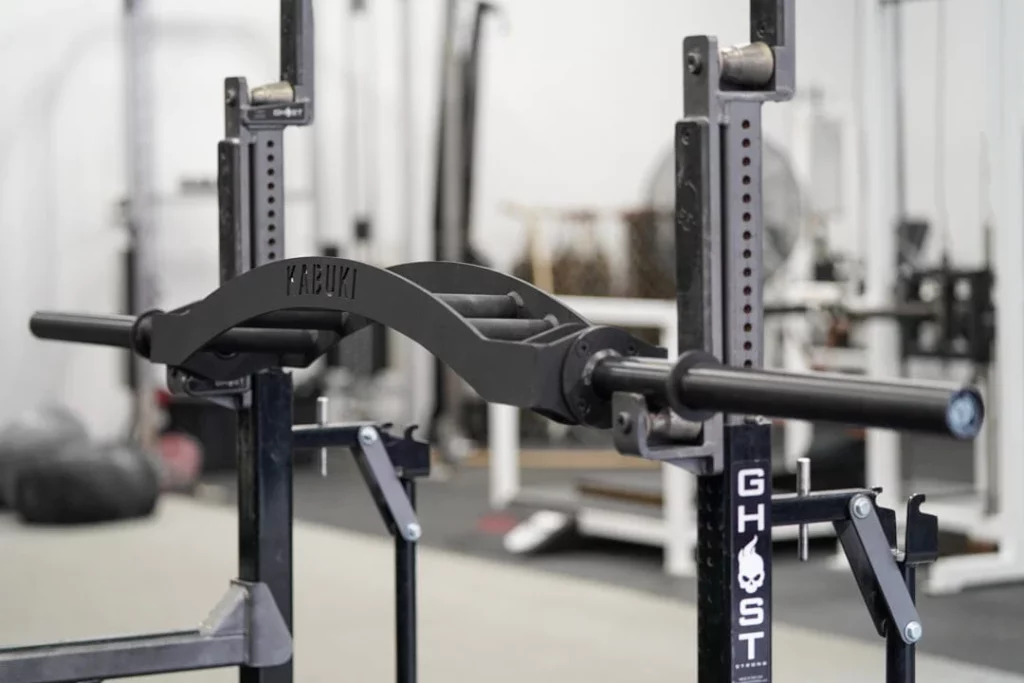Hey there, fitness enthusiasts! Ever heard of the Swiss Bar? If not, you’re in for a treat.
This unique piece of gym equipment is gaining popularity and for good reasons. Some of you might know it by its other names like the football bar or multi-grip bar.
But no matter what you call it, the benefits it offers are undeniable.
Let’s get started!
Table Of Contents
What Is A Swiss Bar?
So, what exactly is a Swiss bar, you ask?
Picture this: you’re in your home gym, ready to crush your workout, and you stumble upon a funky-looking bar that seems to have sprouted multiple handles.
Well, my friend, you’ve just met the Swiss bar, also known as the football bar or multi-grip bar.

This bad boy is a game-changer in the world of fitness, offering a unique neutral grip position that’s perfect for a wide range of exercises.
But wait, there’s more!
This versatile piece of equipment is designed to alleviate shoulder stress, promote better form, and unlock new levels of muscle growth.
It’s like the Swiss Army knife of the fitness world, ready to tackle any challenge you throw its way.
Benefits Of The Swiss Bar
In the world of fitness, it’s essential to continually challenge our bodies, seek variation, and utilize equipment that not only enhances our performance but also safeguards our well-being.

This section will dive deep into some of the many benefits the Swiss bar brings to the table.
The Swiss bar has become a go-to tool for many, from alleviating shoulder stress to amplifying overall strength gains.
Its unique design allows for a neutral grip during weight training, providing a significant reduction in shoulder strain.

This attribute makes it a preferred option for individuals recovering from shoulder injuries or those who wish to prevent potential harm while performing heavy bench presses, shoulder presses, and triceps extensions.
Shoulder Saver
One of the standout features of the Swiss Bar is its ability to be gentle on the shoulders.
If you’ve ever felt that nagging pain or discomfort after a heavy bench press session, you’ll appreciate this benefit.
The Swiss Bar’s angled or neutral grips reduce shoulder strain, making it a game-changer for many.
If you’re curious about the different types of barbells and how they impact your workout, this article offers some great insights.
Versatility in Training
Here’s where the Swiss Bar truly shines:
- Bench Press – Say goodbye to wrist strains.
- Floor Press – Target those triceps like never before.
- JM Press – A unique twist to your regular tricep workouts.
- Shoulder Press – With reduced shoulder strain.
The multiple grip options on the Swiss Bar allow for a variety of exercises, ensuring you never hit that dreaded plateau.
For those looking to diversify the bars you use for bench press training, check this out.
Great For Lockout Strength
The Swiss Bar isn’t just for those looking to mix things up. It’s a powerhouse when it comes to building strength, especially in the triceps.
The unique grip positions can help improve lockout strength in the bench press.
Variety in Design
The Swiss Bar comes in various shapes and sizes, each designed to cater to specific needs.
Whether you prefer neutral grips, angled grips, or a combination of both, there’s a Swiss Bar out there for you.
Easy on the Joints
Ever felt that sharp twinge in your wrists or elbows after a heavy lifting session? The Swiss Bar, with its neutral grip, significantly reduces strain on these joints.
This means you can push harder, lift heavier, and train longer without the nagging aches and pains.
Promotes Muscle Growth
The Swiss Bar isn’t just about comfort; it’s a muscle-building machine.
By offering varied grip positions, it allows you to target muscles from different angles.
This variation can stimulate muscle fibers that might be neglected with standard barbells.
Enhances Form and Range of Motion
One of the underrated benefits of the Swiss Bar is how it promotes better lifting form.
Its design naturally aligns your muscles and joints, making it easier to maintain proper posture during lifts.
Plus, with a more comfortable grip, you’ll find your range of motion significantly improved.
This not only boosts muscle development but also reduces the risk of injuries.
Where to Buy
Swiss bars can be purchased at your local fitness equipment store or from companies such as Rogue, Rep Fitness, Get RX’d, and many others.
Be sure to choose a Swiss bar that suits your needs and preferences, taking into consideration factors like grip angle, size, and weight capacity.
Here are a couple of the best options I recommend.
- Bells Of Steel Arch Nemesis Bar
- Fringe Sport Multi-Grip Swiss Bar
- Get RX’d Multi-Grip Bar 3.0
- Kabuki Strength Kadillac Bar
- Rep Fitness Cambered Swiss Bar
- Rogue MG-3 Bar
- Titan Fitness Multi-Grip Camber Bar
Check out my full list of best barbells if you want to see other awesome barbell options available.
Swiss Bar vs. Barbell
While both Swiss bars and traditional barbells have their benefits, the Swiss bar offers a unique neutral grip position that can help alleviate shoulder stress and promote better form during exercises like bench press and triceps extensions.

A regular Olympic barbell is definitely more versatile with the number of movements it allows you to do.
But having both options is a great idea, especially if you want to get stronger and train around shoulder injuries.
How Much Does a Swiss Bar Weigh?
Generally, a Swiss bar weighs between 35-55 lbs overall.
However, there are lighter and heavier options available, weighing up from 22 lbs all the way up to 64 lbs.
When considering purchasing a Swiss bar, it’s essential to check its specific weight to accommodate your training needs.
Frequently Asked Questions
Conclusion
The Swiss Bar is more than just a trendy gym accessory. It’s a testament to how equipment can evolve to meet the needs of modern lifters.
Whether you’re battling joint pain, looking to break through a plateau, or just want to add some variety to your workouts, the Swiss Bar is worth considering.
Remember, it’s not about replacing your beloved barbell; it’s about complementing it.
Do you think a Swiss bar is right for your training?
Let me know in the comment section below, right now!
Until next time,
-Dante